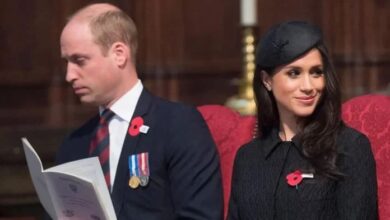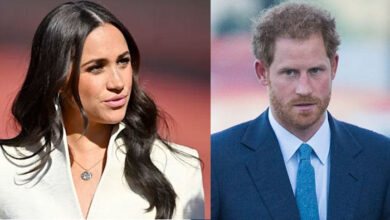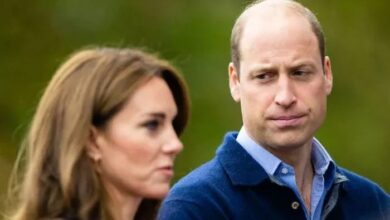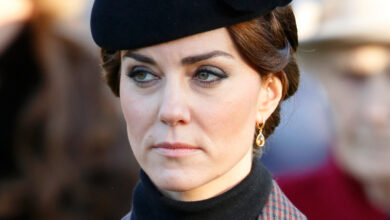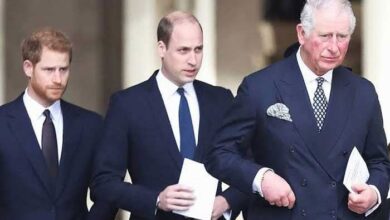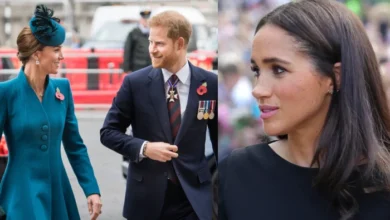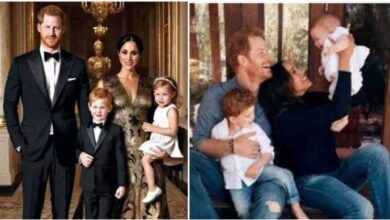Prince Andrew Latest Move Likely to Cause Radical Shake Up at Buckingham Palace

Prince Andrew’s ability to secure funds to remain at Royal Lodge has become a focal point in an ongoing rift with King Charles III, and experts believe this situation could prompt significant reforms within the management of royal properties.
This development has not only reignited scrutiny around Prince Andrew’s role in the royal family but also raised questions about how such arrangements are handled within the monarchy.
Royal Lodge, a grand 30-room estate in Windsor Great Park, has been home to Prince Andrew since 2003. He signed a 75-year lease on the property, with an agreement that required him to invest millions in renovations.
The lease allowed him to retain the property under favorable terms, provided he fulfilled certain obligations.
However, earlier this year, it was reported that King Charles III had asked his younger brother to vacate Royal Lodge.
This move was reportedly part of Charles’s efforts to streamline royal finances and reassign properties more aligned with current needs.
Royal Lodge was rumored to be earmarked for the Prince and Princess of Wales, who require larger accommodations for their growing family and expanded royal duties.
Despite these reports, it has now emerged that Prince Andrew has managed to secure the necessary funds to remain at Royal Lodge. This revelation has sparked widespread speculation, particularly regarding the source of these funds.
Speaking to GB News, royal commentator Gareth Russell suggested that the situation highlights a lack of transparency surrounding such arrangements.
While King Charles reportedly has concerns about where the funds may have originated, legal constraints prevent direct inquiries into the source of income.
Russell explained, “I don’t think it’s the case that [King Charles] doesn’t care where the money comes from. They are restricted by legal matters, which is that they can’t really ask where the money is coming from.”
This situation has broader implications for the royal family’s management of its estates. Gareth Russell noted that the controversy surrounding Prince Andrew’s lease could lead to significant changes in how such agreements are structured in the future.
Currently, leases like the one Prince Andrew holds provide significant autonomy to the occupant, limiting the Crown’s authority over these properties.
This autonomy, combined with the public scrutiny surrounding Andrew’s role and finances, has led to calls for greater oversight and stricter conditions in future agreements.
Russell emphasized that this incident might prompt a “radical shake-up” of royal estate contracts, ensuring that such disputes and uncertainties are minimized in the future.
“It’s become quite clear that the Crown doesn’t have the authority over some of its own properties that it might have in an ideal world,” he said.
Moving forward, the monarchy may adopt more stringent rules for grace-and-favor arrangements, potentially ending long-term leases that give members of the royal family significant control over valuable properties.
The controversy surrounding Prince Andrew’s residence at Royal Lodge also brings to light broader concerns about his ongoing role within the royal family.
Since stepping back from royal duties in the wake of the Jeffrey Epstein scandal, Andrew has faced calls to relinquish his privileges and retreat from public life entirely.
Many critics view his continued occupation of Royal Lodge as a symbol of lingering entitlement and resistance to change within the monarchy.
Public perception of this issue has been overwhelmingly negative, with many questioning why Andrew is allowed to retain such a luxurious property while no longer performing royal duties.
At the same time, this situation underscores the challenges King Charles faces in his efforts to modernize and streamline the monarchy.
Read More: Queen Camilla’s Tension Hesitation towards Kate Middleton Laid Bare
Balancing familial relationships with public expectations and institutional reforms is no small task, and the Royal Lodge dispute illustrates the complexities involved.
This incident may ultimately serve as a catalyst for broader changes within the monarchy. King Charles has made it clear that he envisions a more streamlined royal family, with fewer working members and a focus on efficiency and transparency.
If reforms to royal estate contracts are implemented, they could introduce significant changes to address current challenges. Future leases might be limited in duration, allowing for greater flexibility and enabling the monarchy to adapt more easily to evolving needs.
Additionally, increased transparency could become a cornerstone of these agreements, with financial disclosures potentially required from individuals seeking to retain grace-and-favor properties.
Another key reform could involve tying property privileges more closely to the performance of royal duties, ensuring that access to these valuable estates reflects meaningful contributions to the monarchy’s mission.
These measures would aim to enhance accountability and align royal property management with modern expectations.
These changes could help address public concerns about fairness and accountability while ensuring that the monarchy remains relevant in a rapidly changing world.
Prince Andrew’s determination to remain at Royal Lodge, despite calls for him to vacate, has reignited debates about the management of royal properties and the responsibilities of non-working royals.
While his immediate future at the estate seems secure, the long-term implications of this dispute could lead to significant reforms within the monarchy.
For King Charles, this situation presents both a challenge and an opportunity. By addressing these issues head-on, he has a chance to demonstrate his commitment to modernizing the monarchy and ensuring its alignment with public expectations.
Whether these changes materialize remains to be seen, but one thing is clear: the Royal Lodge controversy has become a pivotal moment in the ongoing evolution of the British royal family.
